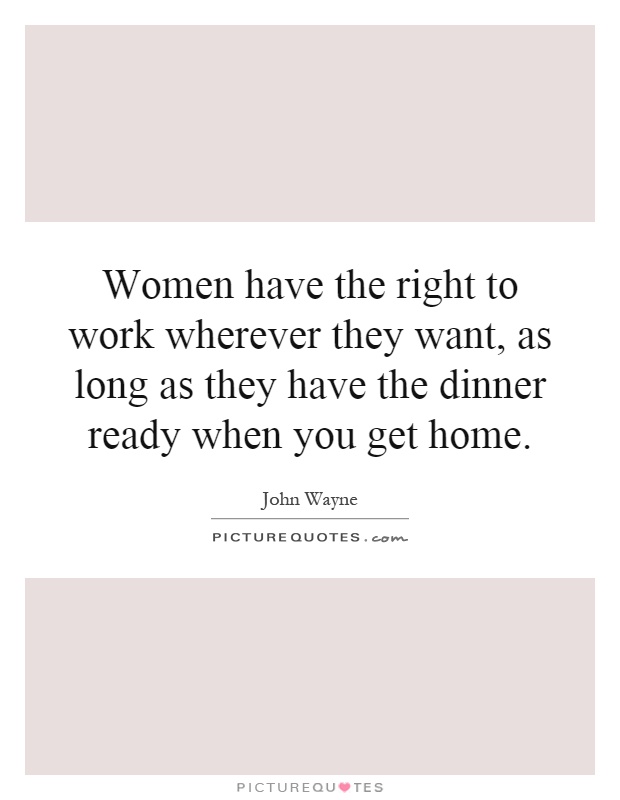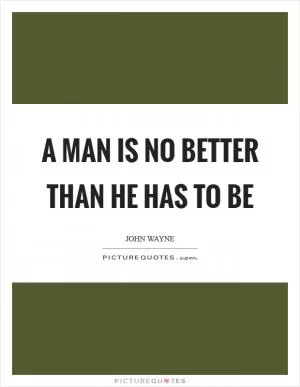Women have the right to work wherever they want, as long as they have the dinner ready when you get home

Women have the right to work wherever they want, as long as they have the dinner ready when you get home
John Wayne, the iconic American actor known for his rugged masculinity and traditional values, was often associated with a certain image of masculinity that included expectations about the roles of men and women in society. In the context of the statement "Women have the right to work wherever they want, as long as they have the dinner ready when you get home," it is clear that this sentiment reflects a traditional view of gender roles that was prevalent during John Wayne's era.During the mid-20th century, when John Wayne was at the height of his career, the idea that women should be able to work outside the home was still a relatively new concept. While women had entered the workforce in increasing numbers during World War II, there was still a prevailing belief that a woman's primary role was to be a homemaker and caretaker. This sentiment is reflected in the statement that women have the right to work, but are still expected to fulfill traditional domestic duties such as having dinner ready when their partner returns home.
John Wayne himself was known for his traditional views on gender roles and often portrayed characters who embodied these values on screen. His characters were typically strong, independent men who took charge and protected their families, while the women in his films were often depicted as supportive and nurturing figures. This traditional view of gender roles was reflected in many of the films that John Wayne starred in, where women were often relegated to secondary roles and were expected to support the male protagonist.
While John Wayne's views on gender roles may have been reflective of the time in which he lived, they are certainly outdated by today's standards. The idea that women should have the right to work wherever they want, but are still expected to fulfill traditional domestic duties, is a notion that is no longer widely accepted in modern society. Today, women are rightfully seen as equal partners in the workforce and in the home, and should not be expected to conform to outdated stereotypes about their roles and responsibilities.












 Friendship Quotes
Friendship Quotes Love Quotes
Love Quotes Life Quotes
Life Quotes Funny Quotes
Funny Quotes Motivational Quotes
Motivational Quotes Inspirational Quotes
Inspirational Quotes